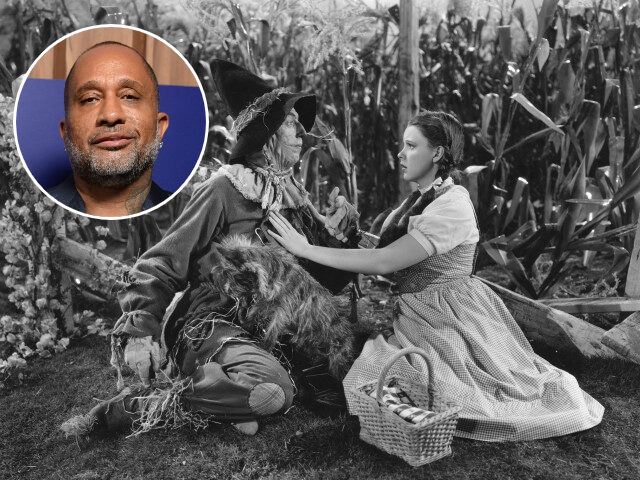Kenya Barris, the director of the upcoming Wizard of Oz remake, has promised to inject homosexuality into the classic children’s film.
This week, Barris said to far-left Variety, “[W]e’re going to turn a mirror on where we’re at right now and take disparate characters from the LGBTQ community, from different cultural communities and socioeconomic communities, and tell a story that reflects the world. I think this is the best time to do that.”
Yeah, I’m pretty sure adding adult sexuality to a kids’ movie is called “grooming.”
My favorite part of the Variety write-up is how Barris tries to justify stripping children of their innocence with this absurd lie: “The original was an allegory and a reflection of the way the world was at the time with things like the Great Depression and the Dust Bowl.”
Uh, no, it wasn’t.
Not even close, pal.
The 1939 classic might have been set in 1939 Kansas and reflect 1939 Kansas, but the Wizard of Oz is primarily about one thing and one thing only: the importance of home.
Judy Garland’s Dorothy gets her wish. She goes over the rainbow to a world that is the exact opposite of bland, boring Kansas. She enters a world filled with bright color and adventure… a world where She Is Special, where she wears the ruby slippers. But very quickly, Dorothy realizes “There’s no place like home.” Almost immediately, she learns to appreciate her colorless life, her family, the contentment, safety, and love of a stable home that she had taken for granted. All the simple, stable, and dull routines of life she learns to appreciate, but only after they are taken away from her.
On a smaller but no less important scale, The Wizard of Oz is about realizing that your potential is within you. No one can give you courage, empathy (heart), or brains. Those are muscles you have to develop on your own. But, at the same time, because they are yours and yours alone, no one can take them away from you.
The Wizard of Oz is about humility over narcissism, becoming a better person, the importance of home, self-reliance, standing up to evil, and, most importantly, appreciating what you have.
While it’s true that some see allegories in L. Frank Baum’s novel, Baum himself never conceded this point. Regardless, even if those allegories are deliberate, the book was written in the 1890s, decades before the Dust Bowl. The belief is that Baum’s Yellow Brick Road represented the Gold Standard or something. That’s hardly the stuff of social commentary.
The Wizard of Oz — both the book and the 1939 movie — is an enduring classic because it chose to be timeless, not timely. This idiot’s not looking to make his own classic. Instead, he’s looking to make propaganda that will impress his left-wing pals and win him some unearned awards and critical acclaim. It takes talent to create a timeless classic. Any hack can do timely.
Watch ‘There’s No Place Like Home” scene from the classic The Wizard of Oz.
Follow John Nolte on Twitter @NolteNC. Follow his Facebook Page here.

COMMENTS
Please let us know if you're having issues with commenting.